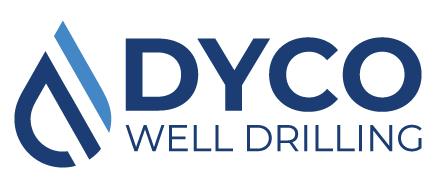Geotechnical drilling plays a crucial role in various industries, from construction to environmental engineering. The quality of the drilling process directly impacts the accuracy of the samples obtained, which in turn influences project outcomes. Mastering geotechnical drilling techniques is essential for ensuring quality products and accurate samples. In this comprehensive guide, we will delve into the intricacies of geotechnical drilling, explore advanced techniques, and provide valuable insights to help you achieve optimal results in your drilling projects. Whether you are a seasoned professional looking to enhance your skills or a newcomer seeking to learn the ropes, this article will equip you with the knowledge and tools needed to excel in the field of geotechnical drilling.
Importance of geotechnical drilling in various industries
Geotechnical drilling plays a crucial role in various industries, providing essential data and insights that are vital for the success of numerous projects. In the construction industry, geotechnical drilling helps engineers and builders understand the soil composition, stability, and other geological factors of a site before any construction work begins. This information is crucial for ensuring the structural integrity of buildings, bridges, roads, and other infrastructure projects.
In the oil and gas industry, geotechnical drilling is essential for locating and extracting natural resources efficiently. By drilling into the earth’s surface, geologists can analyze the subsurface conditions and identify potential oil and gas reserves. This information is crucial for making informed decisions about drilling locations and extraction methods.
Moreover, in the environmental sector, geotechnical drilling is used to assess the environmental impact of various projects, such as land development, waste disposal, and remediation efforts. By conducting soil and groundwater sampling through drilling, environmental scientists can identify potential contaminants, assess risks, and develop effective mitigation strategies to protect the environment.
Overall, geotechnical drilling plays a critical role in various industries by providing valuable information, ensuring project safety, and facilitating informed decision-making processes. Without accurate and reliable geotechnical data obtained through drilling techniques, many projects would face uncertainties and potential risks that could lead to costly delays and failures.
Fundamentals of geotechnical drilling techniques
Geotechnical drilling is a crucial process in various industries, including construction, mining, and environmental assessment. Mastering geotechnical drilling techniques is essential to ensure the quality of products and the accuracy of samples obtained. One fundamental aspect of geotechnical drilling is understanding the different techniques involved.
One common technique is rotary drilling, where a rotating drill bit is used to penetrate the subsurface layers. This method is effective in various soil and rock types and allows for the collection of continuous soil samples. Another technique is auger drilling, which involves the use of a helical screw blade to remove soil and bring it to the surface. Auger drilling is suitable for softer soil types and provides relatively undisturbed soil samples.
Coring is another important drilling technique used in geotechnical investigations. This method involves using a core barrel to extract cylindrical samples of rock or soil for analysis. Core drilling is essential for obtaining high-quality samples for testing and analysis. Additionally, wireline drilling is commonly used for deep drilling projects, as it allows for rapid and efficient penetration of hard rock formations.
By mastering these fundamental geotechnical drilling techniques and understanding their applications, practitioners can ensure the quality of products and the accuracy of samples, leading to successful project outcomes and informed decision-making.
Advanced methods for achieving accurate sample
Achieving accurate samples in geotechnical drilling is crucial for obtaining reliable data and ensuring the quality of the final product. While traditional drilling methods are effective, advanced techniques can further enhance the accuracy of samples. One such method is the use of wireline coring, which allows for continuous and undisturbed sampling of rock formations. By employing wireline coring, geotechnical engineers can extract high-quality samples with minimal disturbance to the surrounding strata, resulting in precise data for analysis and interpretation.
Another advanced technique is the implementation of oriented core drilling. This method involves controlling the orientation of the core sample during drilling to accurately capture the structural features of the rock formation. By maintaining the orientation of the core sample, geotechnical professionals can better understand the geological properties of the site, such as bedding planes, fractures, and foliation, leading to more accurate interpretations and informed decision-making.
Furthermore, the utilization of state-of-the-art drilling equipment, such as sonic drilling technology, can significantly improve sample quality and integrity. Sonic drilling utilizes high-frequency vibrations to advance the drill string through various soil and rock formations, resulting in minimal sample disturbance and higher recovery rates. This innovative method enables geotechnical engineers to obtain pristine samples for detailed analysis and testing, ultimately enhancing the overall accuracy and reliability of the data collected during geotechnical drilling projects.
Incorporating these advanced methods into geotechnical drilling practices can elevate the quality of samples obtained, leading to more precise assessments, informed engineering designs, and successful project outcomes. By mastering these techniques, geotechnical professionals can ensure the integrity and accuracy of their samples, setting a new standard for excellence in the field of geotechnical engineering.
Tools and equipment for mastering geotechnical drilling
Mastering geotechnical drilling requires the use of specialized tools and equipment to ensure quality products and accurate samples. One of the essential tools for geotechnical drilling is the drill rig, which comes in various sizes and configurations to suit different project requirements. These drill rigs are equipped with powerful engines and can handle various drilling techniques such as rotary drilling, auger drilling, and core drilling.
In addition to drill rigs, other essential equipment includes drill bits, drilling fluids, and casing materials. Drill bits come in different sizes and designs to suit different ground conditions and drilling methods. Drilling fluids, such as mud and polymers, are used to lubricate the drill bit, stabilize the borehole, and carry drill cuttings to the surface. Casing materials, such as PVC or steel casings, are used to prevent borehole collapse and maintain sample integrity.
Furthermore, geotechnical drilling also requires the use of downhole tools such as core barrels, samplers, and logging tools to collect accurate samples and data from the subsurface. Core barrels are used to recover intact rock or soil cores, while samplers, such as split spoon samplers and Shelby tubes, are used to collect disturbed samples for laboratory testing. Logging tools, such as gamma probes and resistivity meters, are used to measure geophysical properties of the subsurface.
By utilizing the right tools and equipment for geotechnical drilling, professionals can ensure the success of their projects by obtaining high-quality samples and accurate data for analysis and interpretation.
Conclusion
Mastering geotechnical drilling is essential for obtaining quality products and accurate samples in various industries such as construction, mining, and environmental assessment. By utilizing the right techniques and equipment, professionals can ensure that drilling operations are conducted efficiently and effectively. From selecting the appropriate drilling method to closely monitoring drilling parameters, every step plays a crucial role in achieving the desired results.
In conclusion, geotechnical drilling requires a combination of knowledge, expertise, and attention to detail. By following best practices and continuously improving techniques, companies can enhance the quality of their products and the accuracy of their samples. Investing in training and staying updated on the latest advancements in drilling technology is key to mastering geotechnical drilling and ensuring success in project outcomes. Remember, precision and thoroughness are paramount in this field, and by adhering to these principles, professionals can consistently deliver exceptional results.

